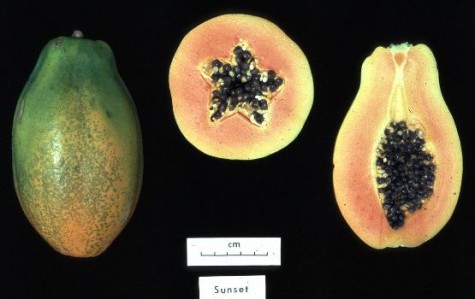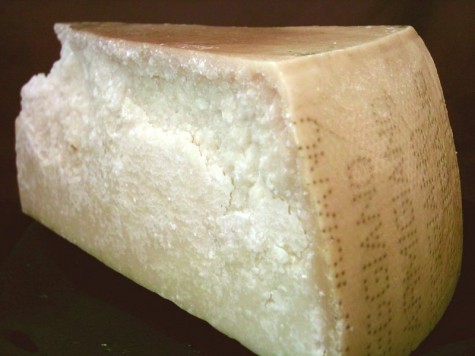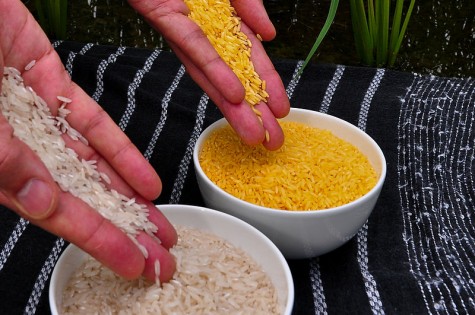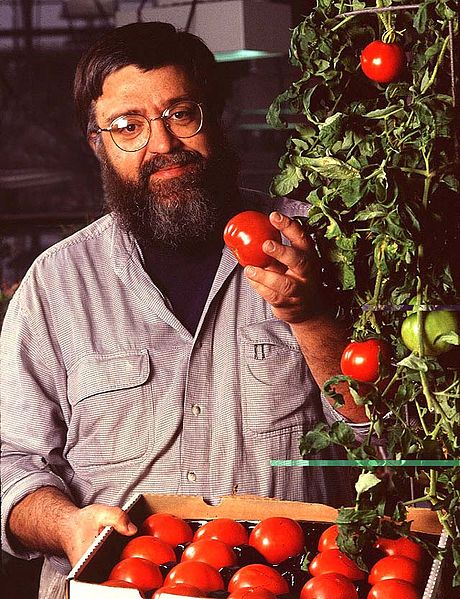Why Exactly Do People Care About GMO Foods? (minus the hysteria)
Connecticut has passed a law requiring GMO foods to be labeled. It’s the first state in the nation to do so.
Recently a friend asked on facebook why people care about GMO foods. What was interesting was that she didn’t just ask about GMO foods but also added a note saying “be gentle” because she didn’t want to get virtually screamed at. I am going to attempt to share with you my knowledge of GMO foods without inserting anyone’s agenda.
GMO is an acronym for Genetically Modified Organism. So a GMO food is involves the alteration of the RNA in a plant or animal. A GMO is not a hybrid which is what occurs when you cross pollinate a flower or fruit to get something like a pluot (plum and apricot) or graft a delicate rose variety onto a much heartier stalk. GMOs do not occur in nature, they occur in laboratories.
Conventional farmers like GMOs because they have been bred to produce larger crops that are resistant to pests. When farmers can grow more product in less space they win.
Farmers seem to lose with GMO crops too. Crops like Round Up Ready Corn are sterile so farmers need to purchase seeds every year. Organic farmers (or even non-GMO farmers) have the option of letting some or all of a crop go to seed so that they can plant again the next year.
GMO crops that contain pesticides cause reactions in the insects that dine on the bounty. Basically their GI tracts explode and they die because insecticides have become part of the RNA of the plant and it’s fruit (I will use the term fruit as a stand in for vegetables too). This is good for farmers but skeptics of the safety of GMO foods wonder if it’s a good thing to put non-target organisms at risk (ie honey bees, wild bees and other pollinators). Other skeptics worry about introducing inflammatory agents into the food chain and are wary of eating pork, chicken or beef that have consumed GMO feed. Still others are concerned that human ingestion of GMO foods could be the path to illness. Farmers like that insects will die off around their crops, this spares them from the laborious and expensive application of pesticides.
There are studies that support both the safety and the risk of GMO foods. I am having a hard time finding a single study that is both definitive and unbiased. The only studies that declare GMO foods absolutely safe are funded by the food producers and the studies that say OMG GMO CANCER tend to be anecdotal (as GMOs haven’t been in the food supply long enough to be researched) or hysteria inducing.
When I asked my online community about GMO foods there appeared to be a knowledge gap. As I suspected, many folks believe GMOs are present only in processed foods. Some folks believe that GMO foods are responsible for allergies (and they might be) but we haven’t any conclusive evidence around that.
Here are a few GMO foods. All images courtesy of Wikipedia.




GMO foods don’t look insidious. They look like fruits, cheeses, and grains. GMO foods aren’t the boogeyman. It’s not like McDonald’s where everyone knows you’re making a horrible decision but you’re making it based on economics, convenience or a clown who came to your kids’ school to teach them to share french fries. GMO foods appear to be innocuous, they look like all the other foods at your local health food store. Wthout labeling there’s no way to know if it’s a risk you want to take with your health.
As Jennifer Taggart points out there are more reasons than health to not buy GMO, there are environmental impacts to consider:
GMO seeds restrict biodiversity. GMOs are intellectual property, with the company producing (Monsanto) reaping great financial benefits whereas traditionally seeds have been a common resource. In other words, a renewable resource becomes a non-renewable, patented commodity. GMO seeds are a great, vast live trial involving not only our health, but the health of our planet. We have yet to understand all the ramifications of using GMOs. We may think we know what we are doing, but there are always unintended consequences.
And when asked about labeling my friend Jill says:
Connecting dots like “our country is getting more unhealthy so it’s probably the government.” is kind of a big jump. I would say our country is getting more unhealthy because we have become lazy. We don’t want to work for what is best for us. Who wants to make dinner when you can just heat up a bag of food in the microwave? The majority of people will just buy broccoli in a bag and call it a night. That’s not the FDA’s fault.. it’s ours. Jennifer.. I know.. you cannot prove something is bad for you unless, well, it’s proven bad for you.. it may take years to figure out that GM foods are giving us cancer. It may take years to figure out that they don’t. Either way.. it’s up to the consumer. I guess the labels are good for people who are completely incompetent and unconscious. I suppose it’s a good thing. I just don’t have the passion for these labels that others do.
At the end of the day they’re both mostly right.
If the only thing you’re looking for is a direct correlation between GMO foods and illness then you’ll be disappointed in the research available.
Things to consider as it relates to GMO foods:
- Who, if anyone, owns the food supply?
- Do we want to eliminate all insects?
- Should farmers be buying seeds every year? Is this the economy you want to support at the grocery store?
- Does biodiversity matter?
- What would a genetically engineered animal look like?
I cannot write this without noting that my home is GMO free. I’m a fortunate woman in that I live in Los Angeles and have the financial means to buy organic foods. Currently in California this is the only way to ensure that the food you’re ingesting isn’t GMO. I cannot state with 100% authority that purchasing organic foods will increase my lifespan but I can state with 100% authority that it increases the lifespan of the men and women who harvest my food, that it does less damage to the earth around me and it feels like the right thing to do. I don’t know if GMO foods will give your child allergies, your mother Alzheimer’s or your cousin cancer. I wouldn’t be willing to say that any these things will happen as a direct result of GMO’s in the food supply but with labels consumers can make their own decisions.